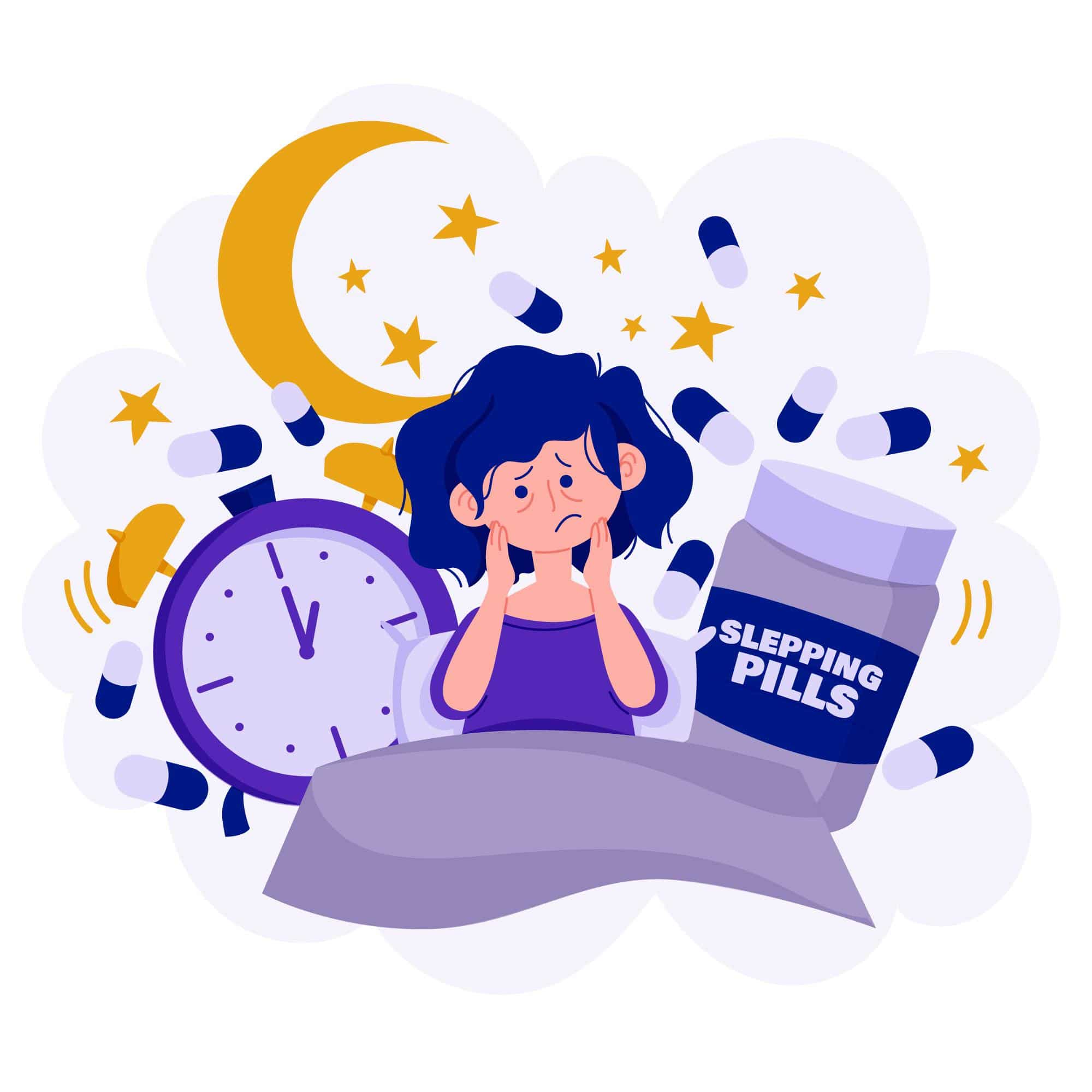Sleep is one of the most self-evident and natural things in life. The biological rhythm of wakefulness and sleep accompanies us from birth. Sleep, especially good and sound sleep, is crucial to the quality of our lives. Sleep needs are different for each individual. Children need it the most, and most adults need seven to eight hours of sleep a day to function normally and healthily. With age, the need for sleep decreases.
However, good and quality sleep is not self-evident for many people. Many people struggle with sleep disorders, among which insomnia is the most common. This sleep disorder is characterized by difficulty of falling asleep, not being able to stay asleep, and waking up prematurely. We know acute and chronic insomnia. Acute or short-term insomnia is not dangerous to an individual’s health. It can be the result of stressful events, but it still has an effect on concentration and increases the chance of mistakes and accidents at work. If insomnia lasts more than 3 months, we are talking about chronic insomnia, which is much more problematic, as it lowers the quality of life and harms health.
What are the main causes of insomnia?
Insomnia can be caused by several factors. The most common are poor sleeping habits, changes in sleep rhythm and external factors e.g. noise, light. Diseases such as respiratory, cardiovascular diseases, gastrointestinal diseases and neurological diseases are also a big reason. Insomnia can also be caused by taking certain medications such as diuretics, antiepileptic drugs, or some antidepressants. Insomnia can be caused by mental disorders such as anxiety and depression. Insomnia can also occur due to fear of a particularly stressful situation, such as an important event, problems at work, financial problems, unemployment or poor social conditions. Traumatic events, such as the death of a loved one, can also be the cause. Even bad habits such as drinking alcohol, smoking and consuming excessive amounts of caffeine can lead to insomnia. According to research, insomnia increases with age and is more common in women.

What are the consequences of insomnia?
The consequences of insomnia can be cognitive, emotional, physical, and motivational and behavioural.
Cognitive consequences are manifested mainly in concentration disorders and working memory disorders. Irritability, emotional numbness, and outbursts of anger are more common as the emotional consequences of insomnia. Physical signs include severe headaches, migraines, a weakened immune system, and pain in the intercostal muscles when breathing. The motivational and behavioural consequences of insomnia are expressed in fearing the evening, daytime napping, and resorting to alcohol or sedatives.

What can we do to prevent insomnia?
The goal of treating insomnia is to improve the quality and quantity of sleep and improve well-being throughout the day.
What if we want to work on it ourselves and don’t want medical help? In this case, we can try the following techniques:
- We reduce the intake of caffeine, alcohol and nicotine
- We do not go to bed hungry or too full, and also, we avoid drinking large amounts of fluid before bed
- We create a sleep schedule to go to bed every day and get up at the same time
- We don’t nap during the day
- We are regularly physically active, but avoid exercising before bed
- We provide a pleasant sleeping environment, free of noise and light
- We introduce the consumption of ashwagandha into our daily lives.

Ashwagandha powder Bio
When we have reached the point of burnout and the stress doesn’t let us sleep
- 100% organically produced
- A natural way of relaxation
- Antioxidants prevent premature aging
- Protects against stress
- Improves our memory and the ability to learn
- Contributes to emotional stability
and save £0.00
100% safe purchase with a no-questions-asked return policy.
What is ashwagandha?
Ashwagandha (Ashwagandha) or in Latin Withania Somnifera is one of the most important Indian herbs. It is also called winter cherry or Indian ginseng. It has always been highly valued in Ayurvedic medicine for its remarkable effect on our mood.
Ashwagandha is a small shrub with yellow bell-shaped flowers, and its fruits are orange-red. Its root, ground into powder, is used for medicinal purposes. It thrives in the Middle East, parts of Africa, and China.
It is better to prevent than to cure
Ayurveda works on the principle that it is better to prevent disease than to cure it.
The healing power of Ashwagandha comes from the number of antioxidants hidden in its root. The most powerful antioxidants in ashwagandha are certainly polyphenols, which successfully defend our body against free radical attacks and thus help slow down the ageing process and the loss of brain cells. It also fights toxins that destroy our body cells. It also contains flavonoids, which are also antioxidants that directly scavenge free radicals and protect vitamin C from oxidation.
Ashwagandha is an adaptogenic plant, which means that it simultaneously invigorates and calms the functioning of our body systems and thus restores the balance in the functioning of hormones. At the same time, it improves our immune system and strengthens the body, while alleviating the symptoms of anxiety and depression and reducing insomnia. It is a very versatile plant, it contains as many as 80 different active substances, and it is used for a wide range of health problems.
Ashwagandha – a natural prevention against insomnia
Ashwagandha is very famous for helping fight insomnia. Its Latin name even suggests it. The somnisphere means “the bringer of sleep.” In the evening, it restores peaceful sleep and stimulates the nocturnal hormones of regeneration, and in the morning it wakes us up, invigorates and strengthens us.
However, it has many other positive qualities. Relieves symptoms of mental and neurological disorders such as anxiety, depression, fear, which are common companions of insomnia. It stimulates the proper functioning of the adrenal gland and helps the body cope with stress better.
It has an anti-inflammatory effect and thus helps with chronic skin inflammations such as psoriasis and dermatitis. It improves the body’s immune system, helps to regenerate muscles after exertion, protects the liver and stimulates metabolism, regulates blood pressure, cholesterol and blood sugar levels. It has a beneficial effect on the heart and blood vessels and also helps with decreased thyroid function. It is important for both men and women as it restores the reproductive organs, promotes fertility and maintains vitality.

Ashwagandha really has a huge amount of healing effects and it would be a real shame to leave it out from your daily diet. The recommended daily amount is 3g (1 teaspoon). It can be mixed into tea, other hot drinks or into a smoothie. If we consume it once a day, try in the evening to ensure a good and quality sleep.
Ashwagandha powder from the Slovenian brand Nature’s finest is 100% natural and organically grown. It is the highest quality form of ashwagandha, without any additives. It defeats insomnia, protects against stress and strengthens our immune system.